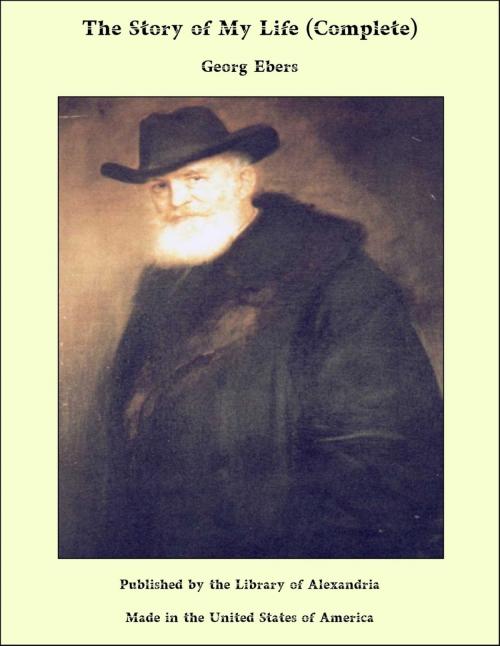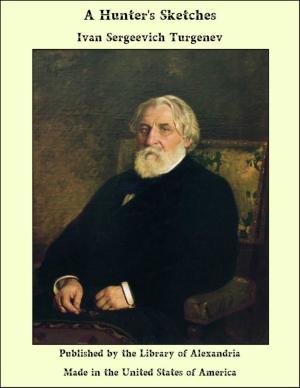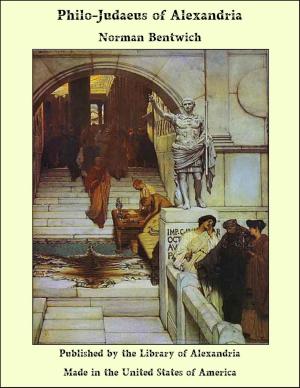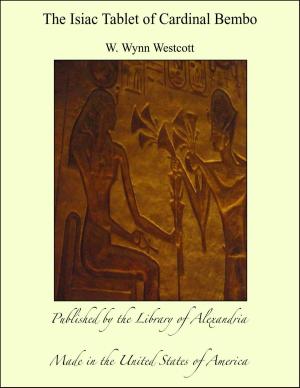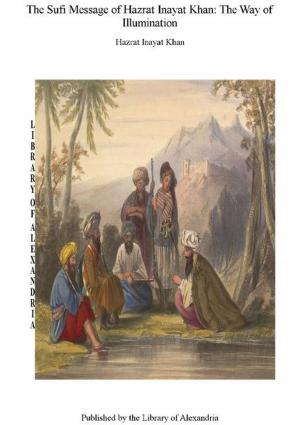The Story of My Life (Complete)
Nonfiction, Religion & Spirituality, New Age, History, Fiction & Literature| Author: | Georg Ebers | ISBN: | 9781465549273 |
| Publisher: | Library of Alexandria | Publication: | March 8, 2015 |
| Imprint: | Language: | English |
| Author: | Georg Ebers |
| ISBN: | 9781465549273 |
| Publisher: | Library of Alexandria |
| Publication: | March 8, 2015 |
| Imprint: | |
| Language: | English |
In this volume, which has all the literary charm and deftness of character drawing that distinguish his novels, Dr. Ebers has told the story of his growth from childhood to maturity, when the loss of his health forced the turbulent student to lead a quieter life, and inclination led him to begin his Egyptian studies, which resulted, first of all, in the writing of An Egyptian Princess, then in his travels in the land of the Pharaohs and the discovery of the Ebers Papyrus (the treatise on medicine dating from the second century B.C.), and finally in the series of brilliant historical novels that has borne his name to the corners of the earth and promises to keep it green forever. This autobiography carries the reader from 1837, the year of Dr. Ebers's birth in Berlin, to 1863, when An Egyptian Princess was finished. The subsequent events of his life were outwardly calm, as befits the existence of a great scientist and busy romancer, whose fecund fancy was based upon a groundwork of minute historical research. Dr. Ebers attracted the attention of the learned world by his treatise on Egypt and the Book of Moses, which brought him a professorship at his university, Gottingen, in 1864, the year following the close of this autobiography. His marriage to the daughter of a burgomaster of Riga took place soon afterward. During the long years of their union Mrs. Ebers was his active helpmate, many of the business details relating to his works and their American and English editions being transacted by her. After his first visit to Egypt, Ebers was called to the University of Leipsic to fill the chair of Egyptology. He went again to Egypt in 1872, and in the course of his excavations at Thebes unearthed the Ebers Papyrus already referred to, which established his name among the leaders of what was then still a new science, whose foundations had been laid by Champollion in 1821
In this volume, which has all the literary charm and deftness of character drawing that distinguish his novels, Dr. Ebers has told the story of his growth from childhood to maturity, when the loss of his health forced the turbulent student to lead a quieter life, and inclination led him to begin his Egyptian studies, which resulted, first of all, in the writing of An Egyptian Princess, then in his travels in the land of the Pharaohs and the discovery of the Ebers Papyrus (the treatise on medicine dating from the second century B.C.), and finally in the series of brilliant historical novels that has borne his name to the corners of the earth and promises to keep it green forever. This autobiography carries the reader from 1837, the year of Dr. Ebers's birth in Berlin, to 1863, when An Egyptian Princess was finished. The subsequent events of his life were outwardly calm, as befits the existence of a great scientist and busy romancer, whose fecund fancy was based upon a groundwork of minute historical research. Dr. Ebers attracted the attention of the learned world by his treatise on Egypt and the Book of Moses, which brought him a professorship at his university, Gottingen, in 1864, the year following the close of this autobiography. His marriage to the daughter of a burgomaster of Riga took place soon afterward. During the long years of their union Mrs. Ebers was his active helpmate, many of the business details relating to his works and their American and English editions being transacted by her. After his first visit to Egypt, Ebers was called to the University of Leipsic to fill the chair of Egyptology. He went again to Egypt in 1872, and in the course of his excavations at Thebes unearthed the Ebers Papyrus already referred to, which established his name among the leaders of what was then still a new science, whose foundations had been laid by Champollion in 1821
